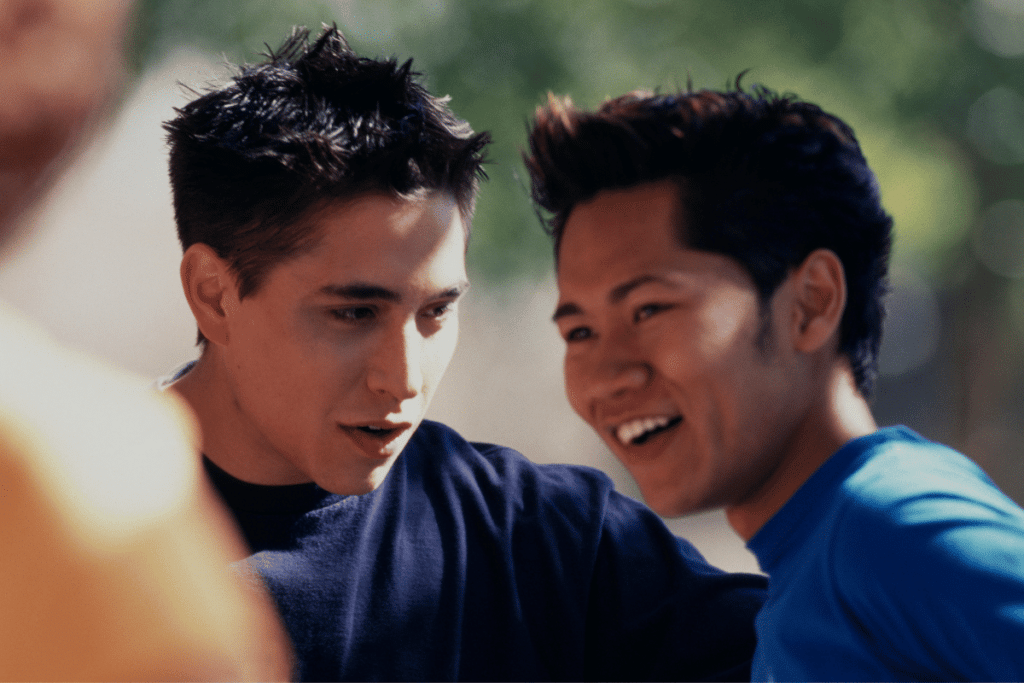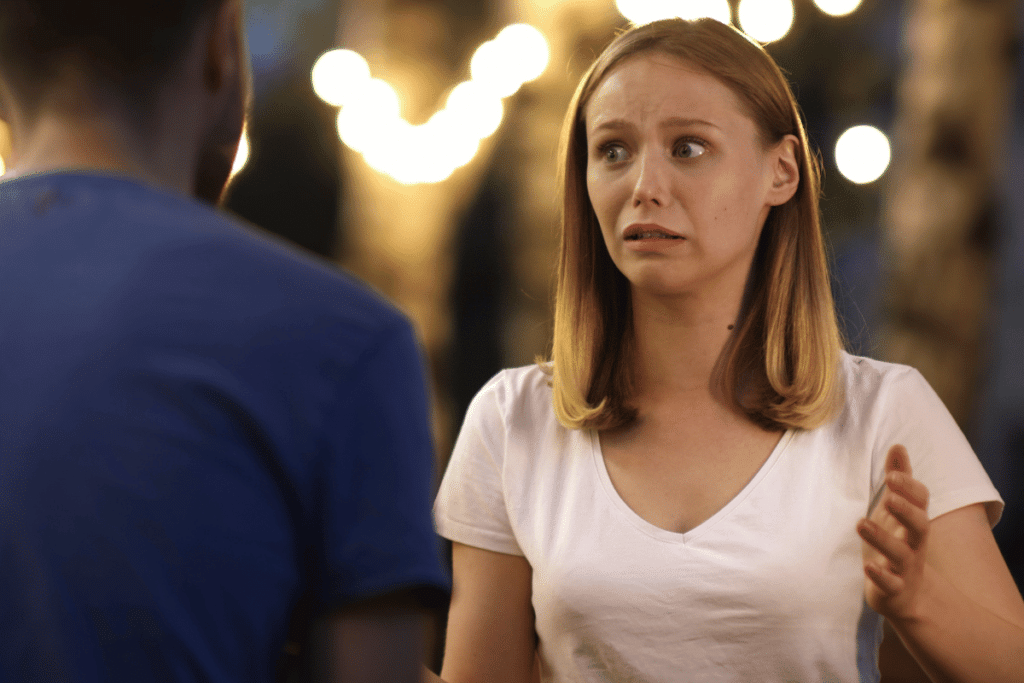
By Samantha Straub, LCPC, Parent Coach and Owner of Teen Savvy
I’m walking down the school hallway at the end of lunch period and see a group of boys, mostly freshmen but also some upperclassmen, clearly animated about something. They’re jostling around one particular freshman boy in the center of the group, as several of the crew periodically glance over at three or four girls, gathered 25 yards down the hallway. The boys are loud. They are energized. And they are up to something.
As an educator who has worked in schools for over two decades, I can tell what’s about to happen, and I know that, no matter how things unfold, I’m about to witness a social trainwreck.
It’s the week before the annual homecoming dance, and love is in the air. Well, maybe not love, but certainly a lot of frantic teenage energy as kids talk outfits, pre-dance photo shoots, and, of course, dates.
Those boys are about to put that freshman in the center up to asking one of those girls in the group down the hall to be his date for the dance. It’s a plan they came up with collectively at the lunch table moments before, and no one has stopped to question how wise it is. Instead the boys are giddy at the thought of one of their own publicly carrying out what is very likely a fool’s errand for which they will have a front row seat.

There’s a good chance the freshman boy has never spoken to the girl, and she may not even know who he is. He’s still making friends and figuring out where he fits in socially, which is a tall order for many kids as they go from being at the top of the social food chain in middle school to being at the bottom as first year high-schoolers. Eager to be liked by his peers and older teammates, the asker is swept up in the contagious group bravado, even though he would never entertain this plan, let alone execute it if he were flying solo.
Meanwhile, the girl and her friends down the hall can sense that something is up, and they turn to face the approaching crowd of boys, who, at that very moment, collectively shove the freshman boy towards the group of girls.
“Um, will you go to hoco with me?” he asks the girl in question.
At this point, it doesn’t matter her answer, the damage is already done. She may feel so pressured to say yes so as not to embarrass him that she gives an affirmative response against her will. Then she’s stuck having to either carry through with the date or send the boy a snap later on backing out of the deal. Icky.

Or she may say no—because she hardly knows this kid. And she doesn’t want to go on a date with him. And she has the wherewithal to declare as much even when surrounded by an audience of their peers, some of whom have probably taken out their phones to film the event.
There is so much wrong with the scenario above. The girl in question probably feels awkward–and objectified, though she may not have the language to say as much. And it would also be within reason for her to feel angry (the group of boys put her on the spot and not one of them stopped to think how she would feel about the incident), or even confused (is she supposed to appreciate this type of attention?). And, as the adrenaline rush subsides and the crowd disperses, the boy is at risk for feeling embarrassment, shame, or worse–like he “won” some sort of hoco-date-acquistion battle. Do we really want young men thinking this is how to start “dating” someone? And how about the onlookers? What small message have they internalized about romance, peer pressure, and their own agency when it comes to healthy relationships? And what about kids in the LBGTQIA+ community, who may already be questioning where they fit into the high school dating scene? Public scenarios such as the one above leave LGBTQIA kids out of the picture entirely.
As homecoming approaches, but also all year long, what can parents do to encourage healthy and mutually respectful romantic relationships for their teens?
- Help your child think big picture about dating. Ask questions like “How would you know if you were or a friend in a healthy relationship? What do you think are the markers of a good relationship? And what are some ways to strengthen a relationship that isn’t healthy? When would a person know if it was time to break up versus continue working on the relationship?
- Feign ignorance as a means of getting your kid talking. If you have the type of kid who won’t answer the questions in #1 when asked directly, you can take on the role of student and put your child in the expert’s seat. “When two people say they are ‘talking,’ what does that even mean? That term didn’t exist when I was your age.” And then take it further. “What’s the difference between flirting, talking, and dating? And how does a couple go from one stage to the next?”
- Be cool…but also seize opportunities to talk about dating and relationships when they arise naturally, such as when you’re watching a show together and there’s a couple on screen. Or if your teen mentions something dating-related in the course of recounting their day such as, “So-and-so got asked to Hoco today.” If the moment allows for it, you can build on your teen’s comment with questions like the ones above.
- Lead with your values and with safety. These are the foundations around which all rules and family guidelines ought to be built, and guardrails around dating and relationships are no different. If you have a rule you want your teen to follow with regards to dating, make sure to explain the safety or values-based reason for your rule to your teen.
- Remind your teen (who may or may not be ready or interested in dating) that they deserve fulfilling, mutual, and fun relationships of all kinds, including romantic ones.
- Remind your child that everyone else deserves the same, so it’s their job not to put others in awkward or uncomfortable positions and to stand up when they see someone else being put in such a position. After all, most teens’ first experience with dating is not as one of the partners; it’s as a bystander to the relationships of their peers.
Samantha Straub is the owner of Teen Savvy Coaching, where she offers parent coaching for those raising teens and tweens. She is also a licensed therapist, long-time school counselor, and mom to two busy teens. You can find her online at www.teensavvycoaching.com, Facebook and Instagram.
Disclaimer: The views and opinions expressed on Annapolis Moms Media and its affiliates are those of the authors and/or experts and do not necessarily reflect the official policy or position of Annapolis Moms Media. Any content provided by our bloggers or authors is of their opinion and is not intended to malign any religion, ethnic group, club, organization, company, individual, or anyone or anything.
The published article is available for informational purposes only and is not considered licensed professional advice on any subject matter. By viewing articles/blog posts, the reader understands there is no client relationship between the reader, the publisher, and its authors. The article/blog should not be used as a substitute for professional advice from a licensed professional, and readers are urged to consult their own counsel on any specific questions concerning a specific situation.





 Life Insurance: Is Your Family Covered?
Life Insurance: Is Your Family Covered?